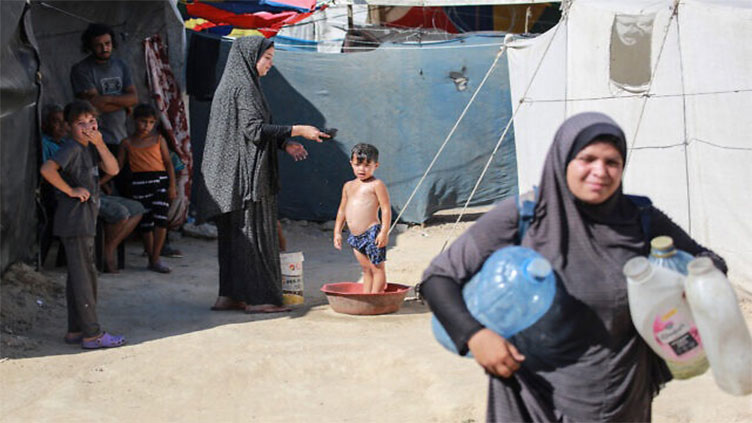WHO says many people in Gaza facing 'famine-like conditions'

World
WHO said a significant proportion of Gaza's population is now facing catastrophic hunger.
GENEVA (Reuters) - The head of the World Health Organization (WHO) said on Wednesday (Jun 12) that many people in Gaza were facing "catastrophic hunger and famine-like conditions".
"A significant proportion of Gaza's population is now facing catastrophic hunger and famine-like conditions," said WHO Director-General Tedros Adhanom Ghebreyesus.
"Despite reports of increased delivery of food, there is currently no evidence that those who need it most are receiving sufficient quantity and quality of food."
Tedros said there were more than 8,000 children under five years old who had been diagnosed and treated for acute malnutrition, including 1,600 children with severe acute malnutrition.
"However, due to insecurity and lack of access, only two stabilisation centres for severely malnourished patients can operate," he added.
"Our inability to provide health services safely, combined with the lack of clean water and sanitation, significantly increases the risk of malnourished children."
The war in Gaza began on Oct. 7 when militants led by Hamas killed 1,200 Israelis and took more than 250 hostage, according to Israeli tallies.
Israel's response has caused the deaths of more than 37,000 Palestinians, according to the Gazan health ministry, displaced most of Gaza's population of 2.3 million and caused widespread hunger and destruction.
A UN inquiry on Wednesday found that both Israel and Hamas had committed war crimes early in the Gaza war and that Israel's actions also constituted crimes against humanity because of the immense civilian losses.
Tedros also highlighted a separate health crisis in the West Bank, where he said healthcare had been targeted by nearly 500 attacks since Oct 7.
"While the world's focus has been on Gaza, there is also an escalating health crisis in the West Bank, where attacks on healthcare and restrictions on movement of people are obstructing access to health services," he said.
"In most areas of the West Bank, clinics are only operating two days a week and hospitals are operating at about 70 per cent capacity."


